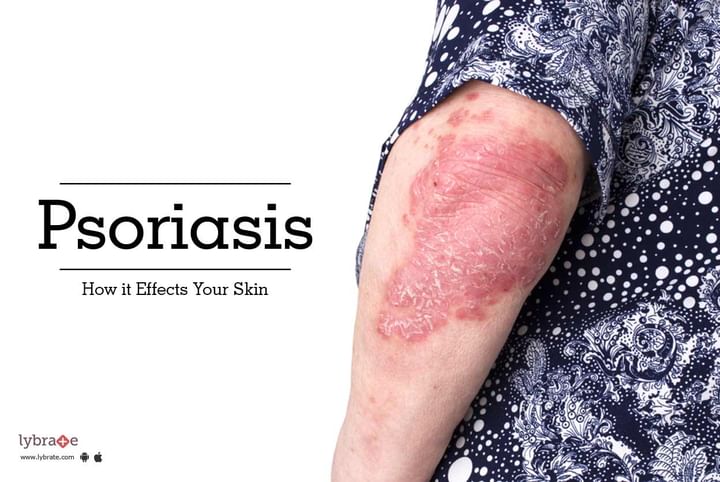Psoriasis - How it Effects Your Skin?
An often persistent and long-lasting condition, psoriasis interferes with the life cycle of skin cells and causes them to increase rapidly on the surface of the skin. These generally appear as dry, itchy and red patches of skin having thick, silvery scales.
Psoriasis can be subdivided into the following:
- Plaque psoriasis: The most common form, characterized by dry, red skin lesions covered with silvery scales and can be seen anywhere on the body.
- Scalp psoriasis: These appear on the scalp and may extend beyond the hairline.
- Nail psoriasis: These affect the toenails and fingernails.
- Guttate psoriasis: Characterized by blister-like appearances and are stimulated by bacterial infections.
- Inverse psoriasis: Caused by fungal infections.
- Erythrodermic psoriasis: Can cover the entire body with a reddish rash that may peel.
- Pustular psoriasis: Capable of causing chills, fever and diarrhea.
The usual signs and symptoms of psoriasis include:
- Red, sensitive patches of skin
- A silvery, scaly cover
- Dry and cracked skin that may bleed when scratched or agitated
- Tiny scaling spots (witnessed in children)
- Persistent itching, soreness or burning sensation
- Ridged, thickened or pitted nails
- Stiff and swollen joints
Possible causes of psoriasis may include:
- Skin infections or strep throat infections
- Stress
- Skin injuries, like cuts, bites or sunburns
- Smoking
- Cold weather
- Chronic alcoholism
- Certain medications such as high blood pressure medications
Risk factors
The following factors may further increase the risk of developing the disease:
- Fungal and bacterial infections
- Family history
- Obesity
- Stress
- Smoking
Ayurveda and Psoriasis
Although the root cause of the disease is yet to be identified, according to traditional Ayurveda, the vitiation of Vata and Kapha causes psoriasis. As per ayurvedic principles, Vata and Kapha are the two basic energies that uphold the balance of our body equilibrium. Strong genetic predisposition, sun deprivation, and intense streptococcal infection on the upper respiratory tract can badly aggravate psoriasis. As per ayurveda, these conditions are strong enough to create several visible pathological changes that take place are mainly due to the accumulation of dooshi vishas or low potency poisons.
Uneven and unhealthy food habits, consumption of foodstuffs in the wrong combination (Example: dairy products with fish or chicken), too much intake of yogurt, black gram, seafood, sour or salted food stuffs, etc. can trigger the psoriasis inducing pathogenesis. Other catalysts that cause psoriasis includes stress, alcohol, and tobacco consumption
Psoriasis can be effectively treated through panchakarma therapies, which include ayurvedic treatment methods for the complete detoxification of the body, and successful elimination of harmful toxins from the body fluids.
A few health tips for psoriasis patients:
- Maintain safer distance from the possible variables that cause or aggravate psoriasis
- Practice yoga regularly. Yoga can lessen the intensity of psoriasis.
- Avoid pricking, peeling or scratching your skin.
- Make sure to pat your skin dry after washing, and avoid rubbing vigorously with towel or any rough cloth.
- Avoid artificial cleansers and use gram flour (besan flour) instead.
- Use cotton clothes
- Avoid cold water bath or immediate cleaning up right after heavy work-out, long walks, or travel.
- Avoid food stuffs that can cause indigestion.
- Avoid excessive salty and acidic food stuffs, radish, urad dal, sesame, jaggery (gur), curds, fish and other sour food stuffs that can trigger psoriasis.



+1.svg)
